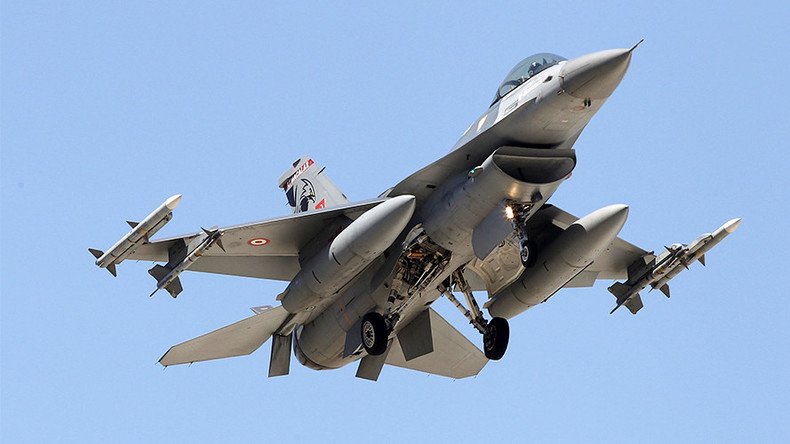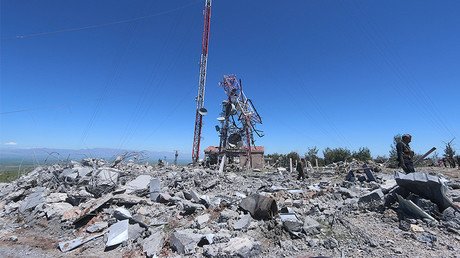‘Loose alliance: Turkish strikes against Kurds show US is not in control of its allies’

Ankara’s strike against the Kurdish-held areas in Iraq and Syria is a political gambit by the Turks and a message from Erdogan to the US that he is really not happy about the situation, says Martin Jay, Beirut-based award-winning journalist.
On Tuesday, the Turkish Air Force hit two Kurdish-held areas in Syria and Iraq, saying the bombardment targeted PKK “terrorists.” Local Kurdish militias the People's Protection Units (YPG) and Peshmerga said the strikes had hit them instead and resulted in casualties among fighters and civilians.
'Terrorists targeted': Turkish Air Force hits two Kurdish-held areas in #Iraq & #Syriahttps://t.co/j5nR5aqjt3pic.twitter.com/U4FcbxN9hC
— RT (@RT_com) April 25, 2017
Commenting on Ankara’s move, the US State Department said it was “very concerned” about the strikes conducted “without proper coordination either with the United States or the broader global coalition” against ISIS.
However, Turkey’s foreign minister said Ankara notified the US and the international coalition of its plans to strike Kurdish-held areas “weeks” in advance.
RT asked Martin Jay, Beirut-based award-winning journalist, what impact Turkish airstrikes could have on joint efforts to combat ISIS.
In his view, these airstrikes against the Kurds “is more of a political gambit of the Turks.”
“But if it carries on, if we see this as a regular pattern, we have to remember that on the ground it is the Kurds that are doing most of the gruesome fighting against ISIS. So, if you start to hit them, then obviously you take the edge off what they are able to do against the extremists. And that does have an impact for further down the line,” he continued.
”Washington needs to take note of what is going on here. It is a message from Erdogan to the Americans that he is really not happy about the situation,” he added.
As to why the US seems to be unable to control its own allies, Jay said “it’s not that easy.”
“The nature of the relations between the allies and America is not very hands on, it’s quite a loose alliance of various partners who take instructions over many days, but there isn’t an hour by hour instruction by Washington about how these forces go about, what they need to do,” he said. “800 American soldiers in Syria, it doesn’t really go very far. And tanks of course are not very effective against airstrikes.”
Joshua Landis, the Director of the Center for Middle East Studies at the University of Oklahoma, called the strikes “a shot across the bow of the American coalition forces.”
“Because the Turks have said in no uncertain terms they do not want the Kurds to be leading the way in the fight for Raqqa,” Landis said.
“The Kurds have accepted this mission not because they want Raqqa, an Arab city, but because they want American protection and support for their attempt at autonomy and quasi-independence in Northern Syria,” he continued.
According to Landis, “The Turks don’t want that, of course, and so this puts a big challenge in front of the US. Will they protect their clients or not?”
In his opinion, “it is going to force the US and Secretary of State Tillerson as well as the President to get on the phone with the Turks immediately and try to figure this out. Because I am sure the Kurds will want answers and they are going to want them quickly.”
The statements, views and opinions expressed in this column are solely those of the author and do not necessarily represent those of RT.













